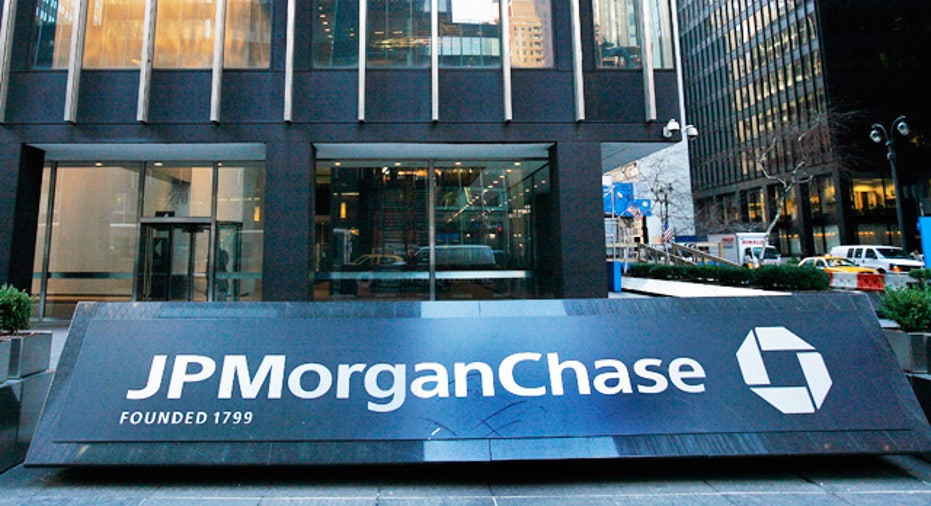JPMorgan Gaffe Is an Argument for Capital, Not the Volcker Rule

For supporters of the Volcker Rule, JPMorgan’s (NYSE:JPM) $2 billion bad bet is “manna from heaven,” proof that big investment banks shouldn’t be gambling their clients’ money in the big casino.
“Understandably and predictably, supporters of the Volcker rule will use this to advance their cause,” said one financial policy expert who opposes the measure that would prohibit big banks from speculating for their own benefit.
But the supporters are badly missing the point, the expert said. JPMorgan’s loss isn’t an argument for the Volcker rule, he said, it’s an argument for capital.
“The purpose of capital is to serve as a buffer for banks when banks sustain losses due to mistakes. As many people are indicating today, this is barely going to make a dent in JPMorgan’s earnings and it’s going to have no impact on their capital. From a safety and soundness standpoint, this is a non-event,” he explained.
On Thursday JPMorgan announced after the markets closed that it had bet wrong on the strength of the U.S. recovery. An investment strategy that involved complex derivatives had backfired on the investment banking giant, leaving a $2 billion hole, with more losses likely.
Almost immediately, supporters of a rule proposed by former Federal Reserve Chairman Paul Volcker intended to rein in speculative bets by big banks like JPMorgan, often described as “too big to fail,” began pointing to the bank’s losses as proof of their case.
Supporters of the Volcker rule, a key element of the Dodd-Frank financial reform legislation passed in 2010, say risky speculation by big banks in search of outsized profits played a significant role in the 2008 financial crisis.
JPMorgan’s CEO Jamie Dimon, who led the bank’s conference call Thursday, addressed the argument: “This doesn’t violate the Volcker rule, but it violates the Dimon principle,” he told analysts and reporters.
Dimon has been outspoken in his opposition to stricter regulations of the financial industry, arguing that they will curtail market competition and cut into bank profits.
Senator Carl Levin (D-Mich.), who helped write the proposed Volcker legislation, barely waited for Dimon to end his conference call Thursday before issuing a statement calling for tougher regulations limiting risk taking by banks.
In any case, some analysts pointed out Friday that the losses sustained by JPMorgan will be easily absorbed by the bank.
JPMorgan: $2.2 Trillion in Assets
JPMorgan had $99.8 billion in revenue in 2011, should have $98 billion in 2012, and is forecast to have $101 billion in revenue in 2013, according to research note issued by Nomura on Friday.
Moreover, the bank has more than $2.2 trillion in assets.
“Others can comment on what this really means but the market cap of JPMorgan is $155 billion, and the investment banking arm had revenues of $26 billion in 2011, while the overall bank’s revenues were close to $100 billion," Kit Juckes, chief of foreign exchange at Société Générale, told Canadian newspaper The Globe and Mail.
“All the numbers are huge - the losses and the earnings. There will be lots of headlines and this is fuel both for a market which is looking for reasons to be risk averse, and for advocates of limits on banks’ risk-taking. But it would be wrong to overstate the macro significance.”
In other words, the losses are JPMorgan’s problem and JPMorgan will handle it.
The financial policy expert interviewed by FOXBusiness.com said JPMorgan has “enormous amounts of capital, and this is why they do.”
Indeed, in March JPMorgan was one of 15 big banks to pass a stress test administered by the Federal Reserve Board. The tests were conducted to determine if banks had enough capital to withstand a sudden crisis similar to the subprime mortgage meltdown in 2008 that nearly crippled global markets.
JPMorgan’s passing grade allowed the bank to raise its quarterly dividend to 30 cents and announce a buyback of up to $12 billion in stock this year.
While the $2 billion (and counting) in losses suffered on bets related to corporate bonds is certainly a black eye for JPMorgan and Dimon, the failed bets should be viewed for what they are, the policy expert said.
“Banks are in the risk business. Finance is about taking and managing risk,” he said. “This is an argument for capital and the good news is that JPMorgan has lots of it.”



















